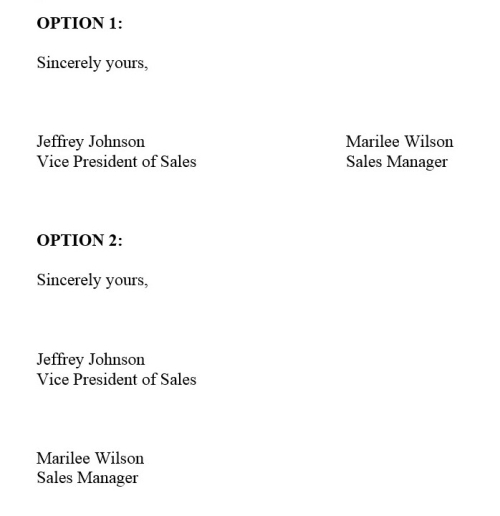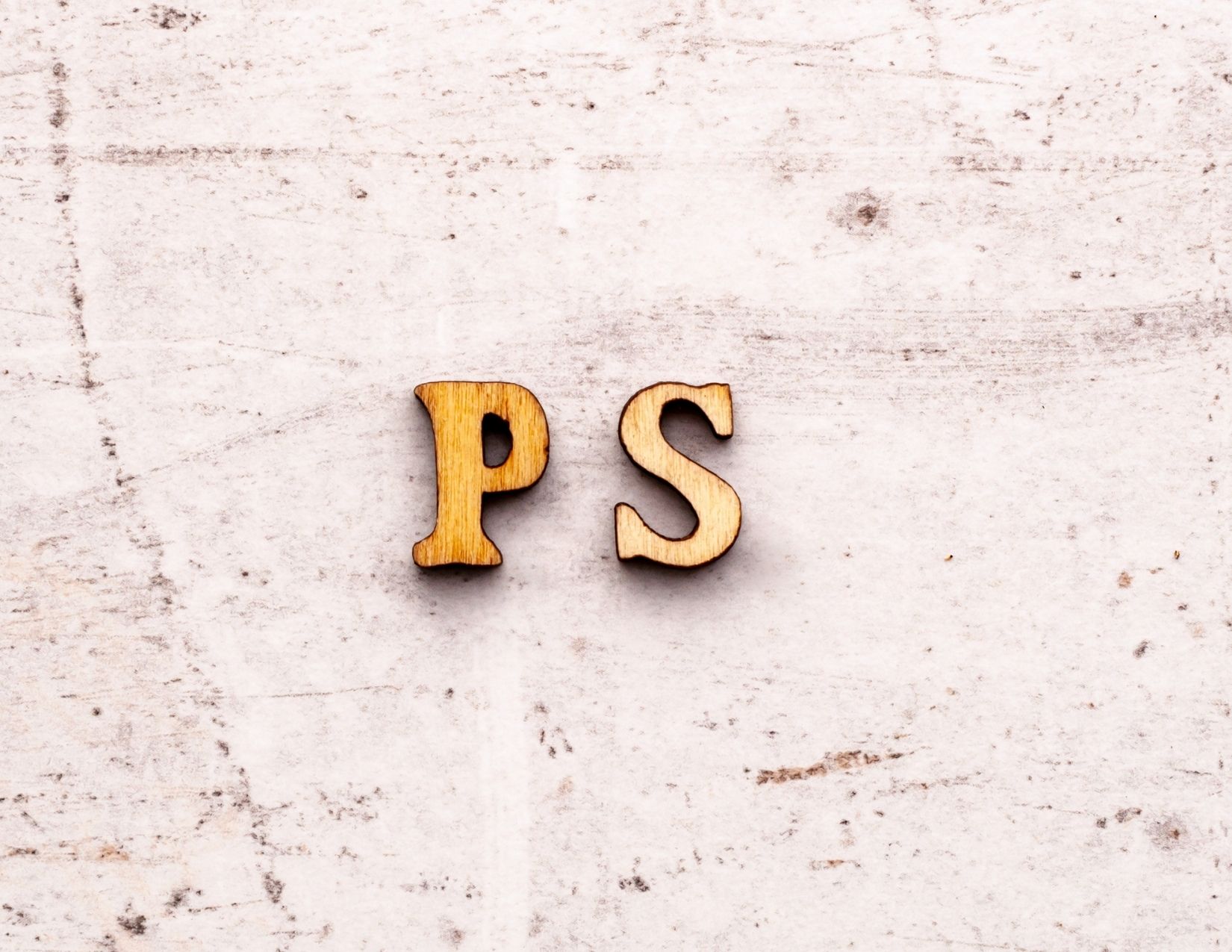With business communication evolving into shorter, quicker messages, people wonder about long-standing formalities like complimentary closes (for example, Sincerely and Best wishes). Do we still use them? If so, which ones belong where? Here are answers to frequently asked questions about complimentary closes for letters, notes, emails, and texts.
Question: Aren’t Sincerely and Best wishes actually salutations?
Answer: No, salutations are greetings. They come at the beginning of the message. Endings for messages are called “complimentary closings” or “complimentary closes”–or sometimes just “closes.”
Maybe the expression “Greetings and salutations” made people think that those are two different things, but they aren’t. They both start a message.
When do I need to include a complimentary close?
Business letters. Closes are standard in business letters, so you need to use them there. One style of letter, the simplified style, leaves out both the greeting and the close. But most writers don’t follow that style.
Notes. At the end of a handwritten message such as a thank-you note or a condolence message, include a closing.
Email used as a letter. You also need to include a close when you use email like a business letter–that is, as a professional communication to customers, clients, and others outside your company.
Internal company emails. Normally you don’t need a close in emails within your organization, but you may want to end with one, especially if you are writing to someone you don’t know or don’t regularly email. Also, some closings help you end on a friendly note.
Texts. As with emails, if you use texts to communicate with customers and clients, you may want to include a closing to come across as polite and professional. Otherwise, you don’t need them.
What are acceptable closes these days?
Many complimentary closes are right for a variety of communications. For letters and notes, these are acceptable, listed in order generally from formal to warm and friendly:
Letters and Notes
Very truly yours,
Respectfully,
Yours truly,
Sincerely yours,
Sincerely,
Best regards,
Kind regards,
With thanks,
Best wishes,
With thanks and best wishes,
Cordially,
Warm wishes,
Warm regards,
Warmly,
Sympathy Cards and Notes
In deepest sympathy,
With sympathy,
With our condolences,
Very sincerely,
Wishing you peace,
Sincere regards,
Emails
If you use email to clients and others the way you would use a business letter, choose from the closes above for letters. For less formal emails, try any of these:
Best,
Regards,
All the best,
All best,
Cheers,
Ciao,
Thanks works especially well in a closing sentence such as “Thanks for your help” or “Thanks again for your interest.” By itself, it may seem incomplete as a complimentary close, but many people use it.
Texts
Texts do not need complimentary closes. But you may wish to use a close if it is to a client, customer, professor, or another individual whose professional relationship you value. Do not use abbreviated closes such as KR or BW, which make readers do the work (Kind regards, Best wishes). Consider these brief closes:
Best,
All best,
Cheers,
If two people will sign a letter, should I include two complimentary closes?
No, even with two people signing, use just one complimentary close. As shown below, you can type the names side by side or one above the other. Of course, the individuals sign above their names.
In my first email to a potential customer, I use Sincerely. In my subsequent emails should I continue to use it? How do I know when to switch the level of formality to a friendlier close?
Change to a friendlier close when you have had friendly interactions with the individual. For example, if you have a phone conversation that helps you get to know someone or if you exchange emails that build your rapport, you can move from Sincerely to Best wishes, Best, or All the best. Also, pay attention to how the other person signs off and consider matching that tone.
In my inbox today, I have emails from customers, clients, colleagues, and vendors that close with Sincerely, Thanks, Thank you, Best regards, Thanks and regards, Best, Kind regards, and no close. The people I know best among these ended their emails with Thanks, Sincerely, and no close.
I have seen closings with all the important words capitalized, for example, Best Wishes and Sincerely Yours. Is capitalizing the second word optional?
Capitalizing the second and subsequent words is wrong. Only when one of those words is a proper noun should it be capitalized. Examples:
Best wishes for a happy Christmas,
Wishing you a wonderful Thanksgiving,
Does a comma always follow a complimentary closing?
Most professionals in the United States and Canada use a comma after the complimentary close. In other parts of the world, many people use no punctuation after the close. (They also use no punctuation after the salutation.) The use of no punctuation after the greeting and close is called “open punctuation.”
If you choose to close with a special phrase such as Happy new year or Have a wonderful trip, you can follow it with an exclamation point.
In a very serious message in which I don’t want to come across as friendly, can I leave out the complimentary close?
Even in a serious message, it’s smart to be polite and professional. With a message such as a debt-collection letter or a job-performance warning, you can use a professional, formal close:
Respectfully,
Very truly yours,
Sincere regards,
Regards,
Are there any closes to avoid?
Avoid any overly mushy closes. For example, do not use Your loving student even if you have a close relationship with your professor. It’s just not appropriate. Some women who are close business friends use XO. It’s a very friendly close, but people who use it run the risk of being misunderstood, especially if other people receive copies of their correspondence.
Also avoid nonstandard closes. One that comes to mind is Kindly. Does it mean that the writer is writing kindly? A better, similar choice is Kind regards.







